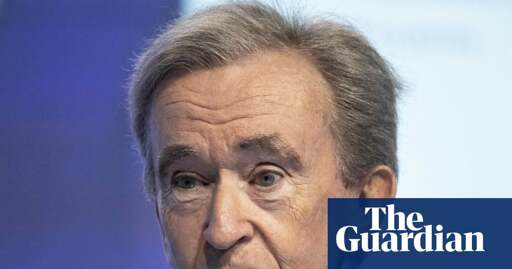cross-posted from: https://lemmy.world/post/36272492
Europe’s richest man, the luxury goods magnate Bernard Arnault, has said that a wealth tax that could cost him more than €1bn (£817m) would be deadly for France’s economy.
The French founder of LVMH Moët Hennessy Louis Vuitton said in a statement to the Sunday Times that calls for a 2% wealth tax on all assets “aims to destroy the liberal economy, the only one that works for the good of all”.
The idea of a wealth tax has steadily gained ground in France because of a political crisis, with the government trying to push through unpopular budget cuts. The idea of a 2% wealth tax on fortunes worth more than €100m has been proposed by Gabriel Zucman, an economics professor who has become a household name in France.



the thing is that it doesn’t even inconvenience them. it’s a net gain for them as well. (they just haven’t understood that yet)
consumerism is in decline because people have less money. if people consume less, companies can’t sell products, so they have less revenue, so the company’s worth less. rich people hold all their wealth as assets of some companies (or apartments that they rent out). if consumers have no money, these assets become less valuable as a result. the only way to keep these assets valuable is to stimulate consumerism, which can only happen if the people have money that they can spend.
taxing the rich might superficially appear as if it would annoy the rich, but actually the opposite will happen. if you tax the rich, the money goes to the people, who spend it by buying products, and so the companies (and therefore the rich) recover that money. as long as that cycle keeps spinning, there’s revenue to be made, and companies and assets are worth something. the wealth of a country is measured in its productive force; if there’s no consumption of products, companies and factories decline and crumble and the productive force diminishes. It is only as long as people continue to consume products that new products will continue to be produced, which means that the factories stay maintained and functional.